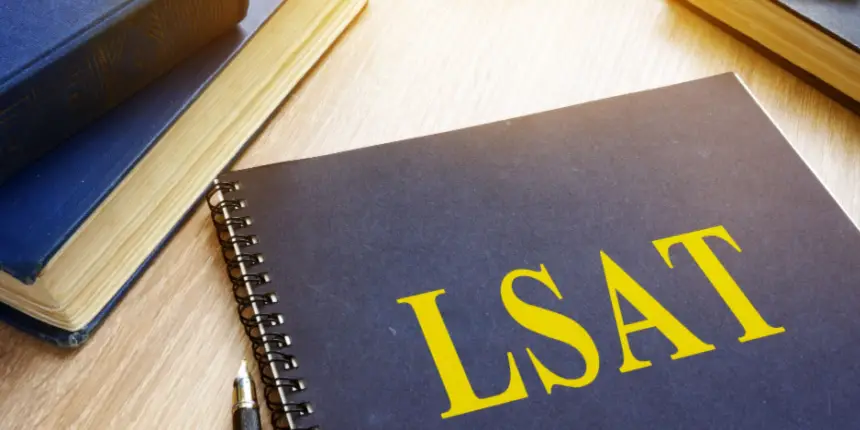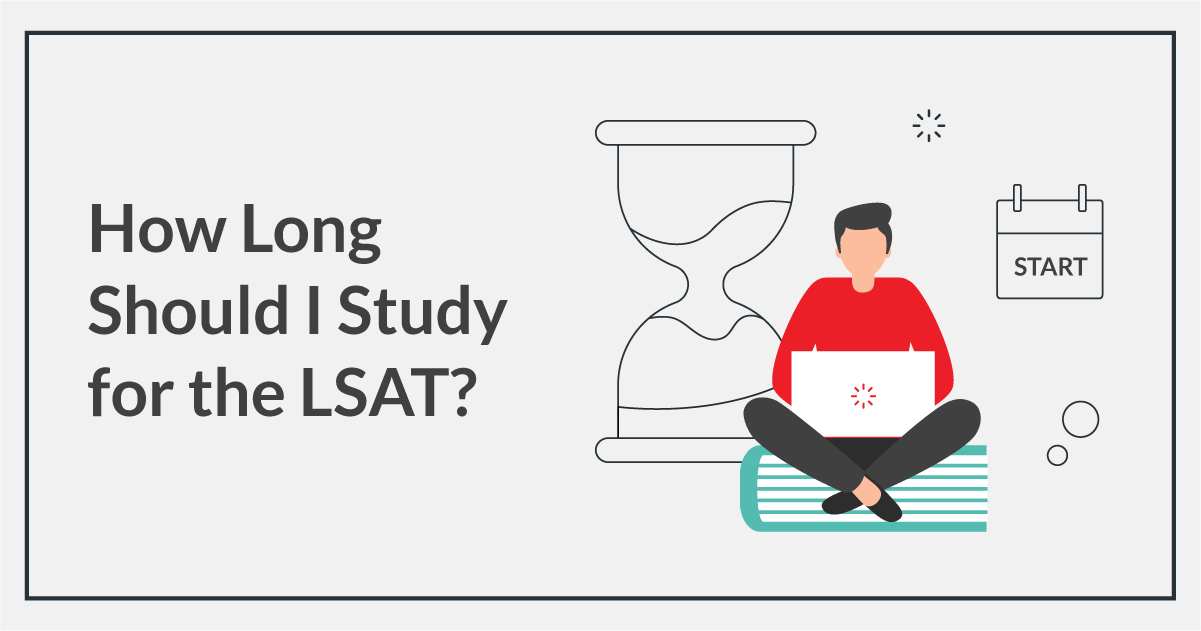The LSAT is intended to test you at the highest levels of critical thinking; it is not a test you can pass on “hope and a prayer.” You will need to apply extensive knowledge of legal concepts to the reading comprehension, logic games, and writing samples. More than rote memorization or flashcards will be required to perform well on the LSAT.
How difficult is the LSAT? It isn’t easy, to be honest. Preparing for the LSAT will be a difficult and time-consuming process. That being said, it is doable with proper planning.
Are you prepared to begin this process? This article contains all the information and ideas you need to understand how to study for the lsat smartly. Discover why, when, and how to study.

What exactly is the LSAT?
The Law School Admission Test (LSAT) is the standardized exam required for law school admission. The Law School Admission Council (LSAC) created and managed it. Because the LSAT is a test of ability rather than knowledge, memorizing the information required to perform well on the exam is impossible. Success necessitates practice. The LSAT will be administered online, live, and remotely proctored beginning in August 2021.
The LSAT includes the following question types:
- Reading Understanding (one 35-minute multiple-choice section)
- Reasoning Analytically (one 35-minute multiple-choice section, known as the logic games section)
- Reasoning Logically (one 35-minute multiple-choice section)
- Section of Experimentation (one additional 35-minute multiple-choice section from one of the above, not scored)
- Writing (one 35-minute section; unscored but sent to law schools). LSAT Writing is a separate online, on-demand exam. You must install proctoring software on your home computer and take the exam within one year of the date of your LSAT test.
What constitutes a good score?
The LSAT ranges from 120 to 180. A high LSAT score will get you into your preferred school (and perhaps helps you get some scholarship money). To determine this, examine the LSAT score ranges accepted at that school. Every school reports its 25th, 50th, and 75th percentile scores. Remember that while your LSAT score is crucial, it is not the only factor in admissions.

How to study for the lsat? When Should You Begin Preparing for the LSAT?
How much time should I devote to studying for the LSAT? Preparing for the LSAT will take several months. The LSAT is given nine times a year, so there are plenty of chances to take it.
While you can reschedule, it’s best to register only when you’re certain you’ll be able to take the exam. You can plan your LSAT study schedule in various ways, but most people will need three to four months to prepare for one of the upcoming LSAT test dates.
This means you should begin your study plan at least 12-16 weeks before your test date. The LSAT can also be expensive, so you should avoid retaking it.
How to study for the lsat? How to Begin?
Do you want to know how to study for the LSAT? Knowing where to begin is frequently the most difficult part. First, devise a study strategy to keep you on track. Get access to all the materials that will help you succeed and work through them according to a plan.
Textbooks, video lessons, audio courses, and practice tests are examples of such materials. When looking for an LSAT review course online, you’ll want to find one that includes all of the features you’re looking for.
Please find the best one and begin using it daily. Here are some things to remember about the exam as a whole.
The LSAT assesses abilities rather than content.
Your LSAT preparation will involve more than just memorizing content. The LSAT consists entirely of games, exercises, and interpretation.
The LSAT requires you to make connections, bridge ideas, and communicate clearly in all five sections. This requires practice. No issue how skillful you are, you should orient your brain to think this way.
A good LSAT review will provide you with the tools to do so. If you don’t like to pay for a prep course, you can still gather many free materials to walk you through the steps.
It Doesn’t Encourage Cramming
Hear this: you should not put off studying for the LSAT until the last minute. Reschedule if you are not prepared. There is a little fee, but it is less expensive than retaking the exam.
Because the LSAT is filled with games and exercises, a short-term memory dump will not suffice. It would be best if you devoted time to master the processes.
Set aside time for in-depth analysis
The LSAT requires only a small amount of surface-level knowledge. Being a good memorizer is beneficial, but it is only one piece of the puzzle.
The LSAT includes several sections in which you must analyze, discuss, interpret, and solve problems. These necessitate a more in-depth understanding of the “why” behind your answers.
Also Read: How To Hide Text In Discord – Learn The Tricks In 4 Different Ways
The Best Way to Prepare for the LSAT
Everyone is unique. However, a few fundamental principles to studying for the LSAT will help you succeed. How should I prepare for the LSAT? Discipline, perseverance, and dedication are your keywords here.
You can’t cram for the exam the week before. LSAT preparation is time-consuming and requires you to plan ahead of time. Repeated practice will help you master the four sections methodically and develop the school of thought required to pass the exam. Maintaining calm and focus throughout your preparation and exam will allow you to perform to your full potential.
Studying for the LSAT is a long-term commitment.
It is beneficial to establish a routine for daily study. Studying for ten hours one day and then skipping the next three is not ideal. Your learning will be enhanced if you maintain clear boundaries between your study, work, and personal lives.
To accommodate this intensive level of study, you may need to make a few temporary lifestyle changes. This does not suggest that everything must be put on hold, but you must find ways to prioritize your studies.
Remember, this is a brief period when you make a significant investment in your future.
Keep a Positive Attitude
Because it is very complex, you will come across many subjects that are difficult for you. You must maintain perspective as you work through difficult ideas. You will not be excellent at everything right away. The LSAT includes this challenge.
The test determines your eligibility to attend law school and, eventually, practice law. You can do it, but you must prove it to the admissions committee. Maintain a realistic and positive attitude.

Not speed, but efficiency
The LSAT preparation process is not a race. You’re not in it to win anything except for your passing score. Rather than rushing through the material, you should prioritize high-quality, intentional study.
Remember that you must retain what you are learning and be able to apply it effectively. You may need to slow down and adjust your pacing as you work through various materials. That’s fine. Don’t give up.
Maintain a Balanced Study Schedule
The LSAT is separated into five sections, each with a different type of question:
- Arguments or logical Reasoning
- Analytical Reasoning, also known as logic games,
- Variable Reading Comprehension Section (unscored)
- Sample of writing (unscored, but goes with your score to admission departments)
You might be good at one or more of these. Others may be particularly difficult. It would be best if you worked on all of them. Even if you’re excellent, you should strive to improve. If you’re having trouble concentrating, maintain a healthy study routine. To pass, you’ll need to do well in everything.
Understand Grammar and Logic
The LSAT is built around two major conceptual areas. Grammar and Logic are examples of these. Language is a critical component of the legal system. Consider any major case you’ve read about: decisions are based on the wording. It stands to reason, then, that the LSAT is designed to assess your ability as a writer.
You must read carefully and communicate even more carefully in all sections. Every word should be meaningful and correctly used. Concentrate your efforts on that.
Logic games will put your ability to measure and judge validity, premises, cause-and-effect, and conditionality to the test. Take advantage of this opportunity to learn basic principles and practice logic games if you did not focus on them in your formal education.
Examine Your Responses
You may feel pressed for time as you take the exam. The best practice, however, is to go over each answer.
Do not assume that you have read something carefully or thoroughly:
- Re-read it.
- Check your Logic and grammar again.
- Before you proceed, make certain that you have done your best.
How Much Time Should I Expend Preparing for the LSAT?
The ultimate answer is: as long as you need to be prepared. Many students study between 20 and 25 hours per week on average. You can already see how your timeline will change if you have work, family, or other obligations. Here are two key points to consider as you make a schedule for yourself.

Aim for 250-300 LSAT preparation hours
The average expert recommendation is 250-300 hours of study time.
Studying 20-25 hours per week will take three to four months to prepare for the exam. You may be able to change the duration if you have less or more time.
But remember that if you take too long, you may forget or become rusty. Alternatively, rushing it may result in sloppy work and mistakes. Bottom line: study for the appropriate length of time for you.
Do Not Take the Exam Unless You Are Prepared
Second, don’t press play until you’re confident in your ability to perform. Understanding how well you would perform if you took the test is extremely useful decision-making information.
Taking a practice exam is the best way to determine your test readiness. Most LSAT prep courses include practice tests, and some even include a proctored version.
How to study for the lsat? Top 10 LSAT Study Tips
You may feel overwhelmed if you’re about to take the LSAT or have already begun studying. That’s normal; everyone who prepares for the LSAT experiences this at some point. But don’t be concerned. You must follow these top ten LSAT study tips and be fine on test day.
Sign up for the LSAT
The first stage in preparing for the LSAT is to select the best LSAT test date for you and register with the LSAC. This step is critical because by registering for the LSAT, you will commit to the examination date and will no longer be able to put off studying by telling yourself that there will be more time to study. It will also be easier to say no to day journeys to the coast or the hills because you will know exactly how much time you have until the LSAT. Make sure you have enough time to study before deciding which LSAT test is best for you.

Schedule your study time ahead of time
It would be best if you desired to study for the LSAT for at least two months, preferably three. During these months, you should study for 2 to 3 hours per day, at least 4 to 5 days per week. There’s no getting around it: studying for the LSAT is equivalent to adding another course to your semester. And the only way to succeed in your LSAT preparation is to schedule your time accordingly. Plan ahead of time to ensure you have enough time to study. You don’t want to find out a few weeks before the LSAT that you didn’t give yourself enough time to prepare.
Setting and adhering to an LSAT study program will be critical to your success, so plan.
Select the most effective study guides
After determining the best LSAT study schedule, you must choose the best study materials. An LSAT prep textbook or two will be critical to your successful study. There are many books to choose from, so save time by checking some handy lists of the best LSAT preparation books.
In addition to selecting a suitable book, you may decide that a prep course is appropriate. You can find a course with a set schedule if you struggle with discipline or the thought of creating your course schedule overwhelms you. If you cherish flexibility or are trying to fit LSAT prep into an already packed schedule, you may discover that studying online at your own pace works best. In either case, decide early based on what has worked well for you.
Practice, practice, and more practice.
You’ve determined an LSAT test date and bought your study materials. You already understand what comes next: lots and lots of LSAT preparation! It would be best if you devoted countless hours to solving LSAT practice problems to enhance your LSAT performance. It would be best if you did this for several grounds.
To begin, you should become familiarized with how LSAT problems are structured and how the test creators will write questions and answers to deceive you. Second, you must view all the difficulty levels you will encounter on test day.
Every Logic Contest or Logical Reasoning question is not the same. Your success will be determined partly by your ability to recognize difficult questions. You should ignore these questions and return to them afterward if you have time. Eventually, by the time the actual LSAT arrives, you should be so familiar with LSAT test questions that you can tackle anything.
Another important aspect of your preparation will be reviewing your incorrect answers and taking practice tests (more on this in the following tip!). Comprehending how to study for the lsat is essential for making the most of your dedicated study time.

Complete full-length LSAT practice exams
Taking full-length LSAT practice tests is another important part of your LSAT preparation that will help you improve your LSAT score. As you prepare to take multiple practice LSATs, you’re presumably wondering how much time you’ll need.
Plan on accepting at least four full-length practice tests. This translates to about 16 hours of multiple-choice fun. Isn’t it exciting? You’ll be so grateful for those 16 hours of prep time on the day of the LSAT—the test structure, format, and timing will be so familiar to you that you’ll have no choice but to ace the LSAT.
Concentrate on LSAT Logical Reasoning
You must perform well on Logical Reasoning to do well on the LSAT. Why is this the case? As Logical Reasoning accounts for half of your LSAT score. Another way to assess how much Logical Reasoning is worth is to consider that any time spent on Logical Reasoning is worth twice as much as any time spent on Logic Games or Reading Comprehension.
On the LSAT, don’t avoid your weak points.
While you should devote extra time to Logical Reasoning, you should not neglect any other LSAT section. Although it may be attractive to skip the most difficult section – Logic Games for most students – do not fall into this trap. When you first start, your weakest area is also where you can gain the most points and see the greatest increase in your score.
Do not disregard the LSAT writing sample.
Even though the LSAT writing sample does not count toward your LSAT score, it is still important. When reviewing your records, law schools may consider your writing sample – you don’t want to miss out on another chance to impress the admissions committee. On the other hand, you don’t have to devote much time to prepare for the writing sample. Practice the writing sample after each practice test, and you’ll be fine.
Preparation for the LSAT
To make the most of your months of LSAT preparation, you must perform well on test day. Is it easier said than done? Nope. Plan the logistics of the LSAT examination day before the actual test day. Determine how and when you will arrive at the testing center. Prepare snacks and anything else you want to bring that the LSAC allows. You can focus on performing well and scoring well if you are prepared for the details of the test day.
Relax
You’re probably wondering how you can relax when you have to choose a test date and location, study for months, and then sit for a four-hour multiple-choice exam. That’s an excellent point. It doesn’t count how much studying you do if you don’t take time to recharge and let your brain absorb what you’ve learned. Also, to perform well on a timed test, you must learn to relax even when stressed. So, practice relaxing while studying and taking practice tests to absorb more information while studying. On the day of the LSAT, you’ll do your best.
How to study for the lsat? How to Put Everything Together?
Drilling and learning, practice exams and review – are the four most important components of a successful prep schedule.
Drilling is the practice of isolating and repeating a specific challenge presented by the LSAT. Drills in study materials such as the Trainer can help you strengthen specific skills (such as translating conditional statements). Still, most students talk about drilling when doing sets of LSAT questions separated by characteristics such as question type, game type, and so on.
As previously stated, you want to complete most of your learning early in your study procedure, so you have ample time to practice applying what you know. Then you’ll want to move on to drilling, and connecting the strategies and lessons you’ve learned with specific drill sets can be beneficial. Then you should finish your preparation by concentrating primarily on practice tests. And throughout the process, you should spend a lot of time reviewing your work.
If you have twelve weeks to study, you might spend the first three weeks getting your feet wet (a diagnostic can be helpful) and learning about the exam, the next three weeks bringing your learning and drilling together, and the next three weeks mostly on firming up habits through drilling, and the final three mostly on full practice exams (again, with plenty of review and overlap throughout). It would be best if you also planned for plenty of flexibility—specifically, give yourself some extra leeway in the final weeks to go back and address any remaining weaknesses.
The bottom line
The LSAT is extremely important for your future, and while life gets in the way for almost everyone, you want to do everything you can to be as prepared as possible for it, no matter how long it takes. However, it is also true that one can make enormous strides in a short period, and even if your time is limited, there are always a lot of steps you can take to improve your LSAT score.
Whatever your situation, we hope you found this article useful and gave you some ideas for studying for the lsat.

